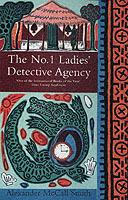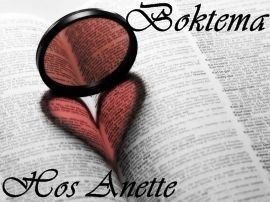It’s been so long (12 November?!) that I’m not even sure I can remember everything, never mind which order…
Eats, Shoots & Leaves: The Zero Tolerance Approach to Punctuation by Lynne Truss – while I agree with the zero tolerance approach, this book didn’t quite do it for me. Not quite funny enough, and not quite extreme enough. Or something.
Faster, They’re Gaining by Peter Biddlecombe – entertaining enough, but that’s about it (will be bookcrossed).
A Good Man in Africa by William Boyd – received as a RABCK. I loved the film when I saw it years back, I struggled somewhat with the book, though. I think it’s probably just my old problem of needing to empathise with the main protagonist and, frankly, Morgan Leafy is not the most appealing of characters… However, as Morgan «grows» as a character, I get more caught up in the story, so that by the end I’m beginning to forget about the struggle with the first half (or so). Still, not, I think, Boyd’s best (and I’ve only read two).
The Scarlet Letter by Nathaniel Hawthorne – Uhm. Yeah. Classic, you say? Why? Not my cup of tea. For one thing I find it hard to believe that ANYONE (let alone a seven-year-old child) ever spoke like that.
Ikoner i et vindu av John Erik Riley – Tja. Ikke dårlig, bare ikke særlig bra. Hovedproblemet, kanskje, er at de forskjellige fortellerstemmene lignet alt for mye på hverandre til å være særlig overbevisende som forskjellige fortellere. (Blir bookcrosset.)
The Arm of the Starfish by Madeleine L’Engle – another RABCK. Pretty enjoyable, this, but I agree with rednumbertwo who sent it to me that the religious/spiritual overtones were a little hard to swallow. Not giving up on L’Engle, though.
No Logo by Naomi Klein – a reread prompted by the Husband reading it for the first time. Somehow it’s stayed with me for longer and been more fundamentally upsetting this time round, probably because of the pregnancy. It seems worse, somehow, to contemplate the baby wearing clothes sewn by children or even adults in sweatshops than wearing such clothes myself (though I hardly like the latter thought). I suppose it’s a good thing to become more «hung up» on such issues, but it’s certainly made shopping a lot more difficult…
Anansi Boys by Neil Gaiman – clever and entertaining, and a quick read as it was quite difficult to put down for any amount of time.
Pappa for første gang av Finn Bjelke – kjøpt til mannen i julepresang (kjempeoppfinnsomt, sant?). Lettlest (vi hadde begge lest den innen utgangen av 2. juledag) og underholdende, men med noen gode poenger (tror jeg da – vi får se hvordan realiteten blir…).
ABC for spedbarnsforeldre av Nina Misvær – sikkert nyttig…
The Baboons Who Went This Way and That by Alexander McCall Smith – another collection of folk tales from Africa.
The Outlaws of Sherwood and Spindle’s End by Robin McKinley – McKinley was a pleasant discovery. The Robin Hood version caught my eye, as I collect Robin Hood versions, and since they were both on sale and Spindle’s End looked intriguing, I bought both. In The Outlaws of Sherwood we meet a Robin Hood like no other Robin Hood I’ve ever come across. It’s a more realistic novel than any other Robin Hood novel I’ve ever read, and the characters are all more human and fallible. Much as I love the legend of the (almost) invincible outlaw, I hugely enjoyed this fresh take. Spindle’s End is Sleeping Beauty retold, with surprising twists to the tale, and rather a lot of «embroidery», seeing as filling a novel with just the basic tale would be rather difficult. It’s pretty and competent embroidery, however, and is to be recommended. I’ll be looking for more McKinleys – and not just on sale, either.
Vita Brevis av Jostein Gaarder – jeg nærmest skummet gjennom denne. Kanskje fortjener den mer oppmerksomhet, men jeg er ikke så sikker (nok en bookcrossing-bok).
 I don’t know that I have much to add, since I actually managed more than one line on this book the first time I read it. We agreed in the book club to pick a few «light» reads to cover over the summer, and for everyone to bring suggestions, rather than just one of us (we’ve been taking turns in suggesting the next read so far). The idea was to read crime novels and such ilk, and since there is a limit to how many crime novels I read I was somewhat stuck as to what to suggest, until I remembered that Mma Ramotswe is indeed filed under «Crime» in most bookshops. Since one of my missions in life is to get everyone in the world to read at least one Alexander McCall Smith novel (I figure most sensible people will continue on to read more once I get them to read one), <em>The No. 1 Ladies Detective Agency</em> was the perfect choice, I thought, and luckily it was indeed one of the four titles chosen for our summer reading.
I don’t know that I have much to add, since I actually managed more than one line on this book the first time I read it. We agreed in the book club to pick a few «light» reads to cover over the summer, and for everyone to bring suggestions, rather than just one of us (we’ve been taking turns in suggesting the next read so far). The idea was to read crime novels and such ilk, and since there is a limit to how many crime novels I read I was somewhat stuck as to what to suggest, until I remembered that Mma Ramotswe is indeed filed under «Crime» in most bookshops. Since one of my missions in life is to get everyone in the world to read at least one Alexander McCall Smith novel (I figure most sensible people will continue on to read more once I get them to read one), <em>The No. 1 Ladies Detective Agency</em> was the perfect choice, I thought, and luckily it was indeed one of the four titles chosen for our summer reading.